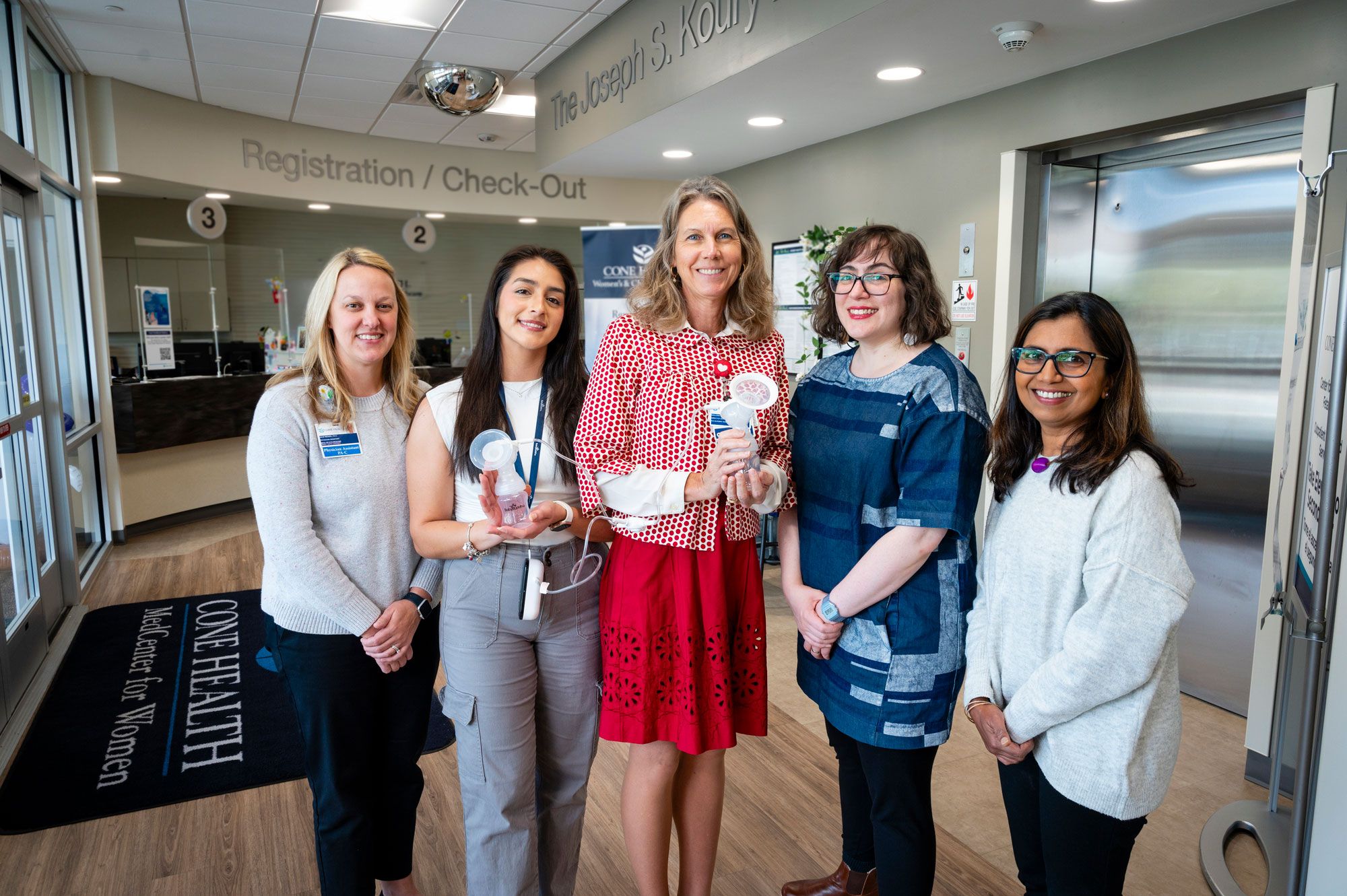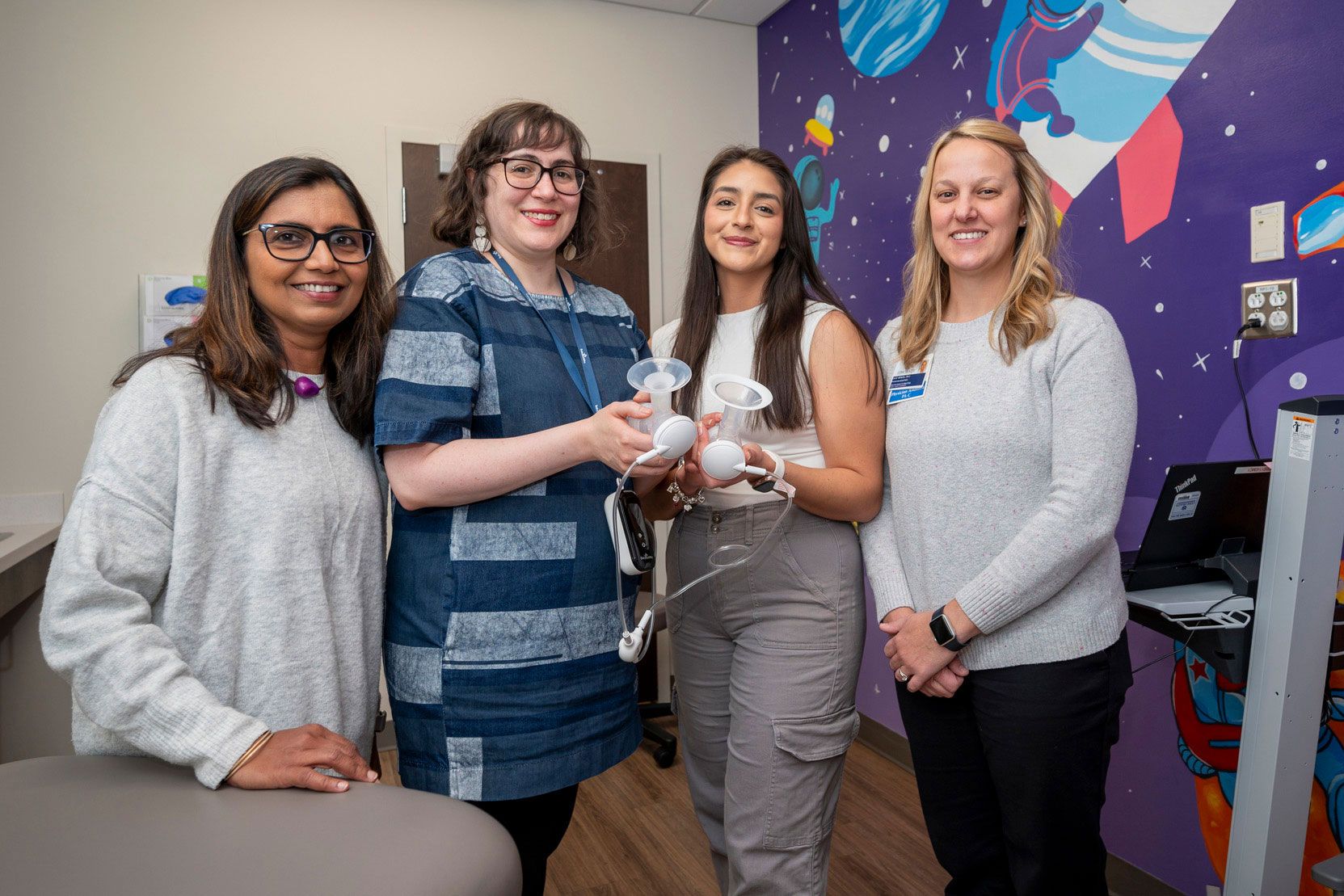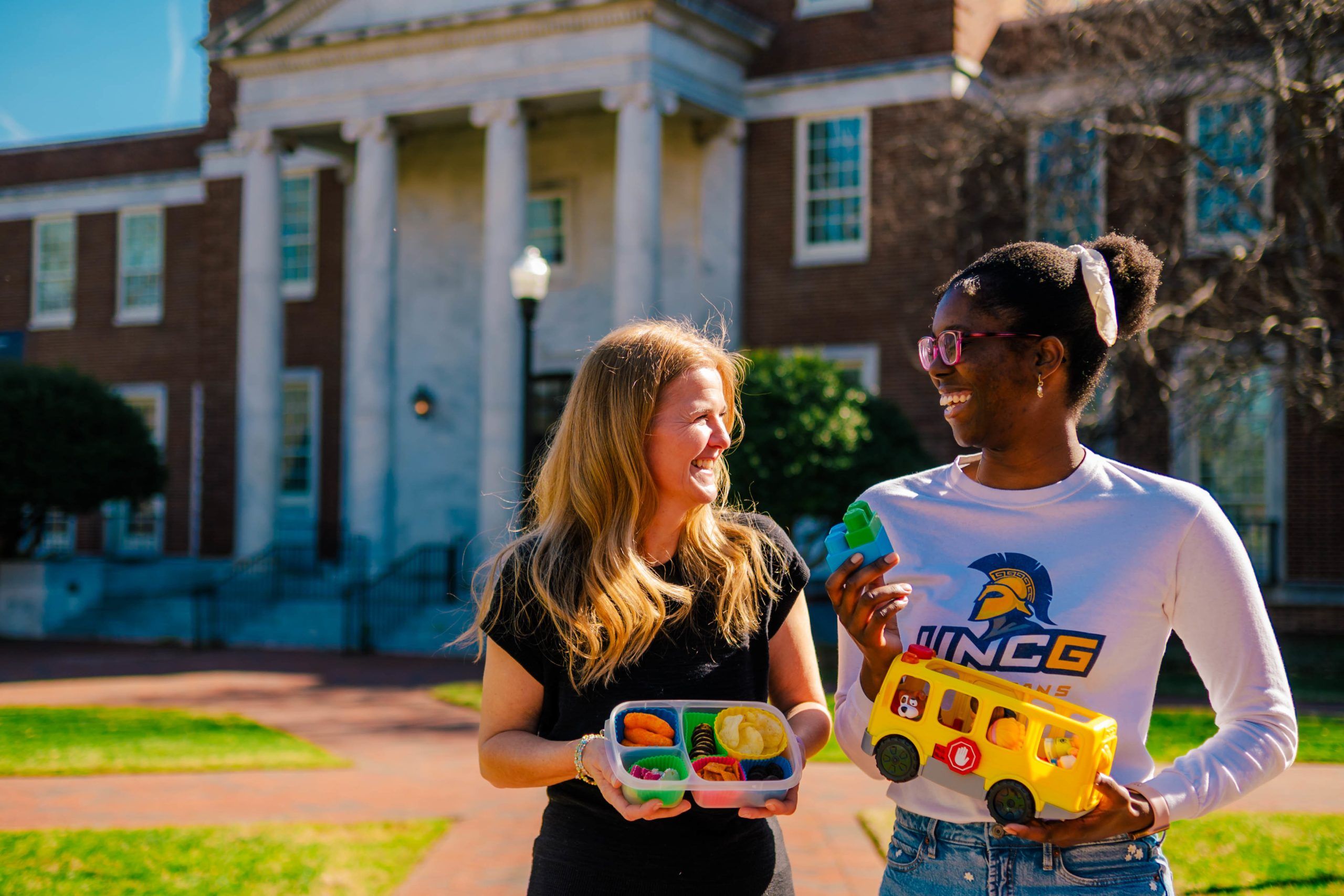What’s for dinner, baby?
What’s for dinner, baby?
How and what infants eat has profound and long-lasting effects on their health and well-being – including obesity rates and how vulnerable they are to illness and chronic health conditions as they grow older.
Around the world, an estimated 37 million children are obese, as well as a growing share of adolescents and adults.
But many questions remain about the pathways through which feeding and nutrition influence child development. UNCG researchers are leveraging cross-disciplinary expertise to answer those questions and develop evidence-based strategies to improve maternal and child well-being.
These scientists are lowering barriers to breastfeeding, improving the safety of donated breast milk for preterm infants, and uncovering which feeding practices lead to infant and child weight gain.
And, ultimately, they’re improving nutritional outcomes, early life development, and long-term health, here at home and across the globe.
Story Highlights
UNCG researchers bring evidence-based strategies to support parents and babies, both locally and globally.
STORY HIGHLIGHTS
UNCG researchers bring evidence-based strategies to support parents and babies, locally and globally.
It’s no secret to most parents that breastfeeding is tough. But popular culture tends to present this critical activity as effortless and intuitive – setting some parents up for a surprise when they face barriers, including lack of time, support, and confidence, as well as physical limitations.
Dr. Jasmine DeJesus, an associate professor in psychology, recently experienced difficulties breastfeeding her first child. “I just have one experience with one kid, but it’s really opened my mind up: What are the bigger range of experiences?” she asks.
Now, DeJesus and Professor Jigna Dharod in nutrition are leading a $784,369 NIH-funded trial to reduce the barriers Latine parents face when breastfeeding.
It’s a needed project with trickle-down impacts that can help address the high obesity rate among U.S. Latine children. Almost half of the adult U.S. Latino population is obese, and infant nutrition serves as the foundation for lifelong health.
Formula feeding is linked to rapid weight gain in infants, which is in turn linked to childhood obesity and to lifelong obesity, the researchers say.
In a 2023 study of low-income families, Dharod and DeJesus found that infants who were fed only formula had three times higher risk for rapid weight gain.
“Infancy is a very important life stage. It’s a highly developmental phase, and it’s a phase of immense opportunities,” Dharod says. “At the same time, any vulnerabilities during this phase can have a lifelong impact.”
Growing Evidence
In a UNCG study on the psychological, biological, and social factors linked to rapid infant weight gain, researchers followed 299 women and their infants from pregnancy to toddlerhood and found that infant feeding practices associated with obesity, known as obesogenic practices, play a central role.
Examples of obesogenic practices described in their recent Pediatric Obesity paper include watching television while feeding a baby, formula feeding, and supplementing a bottle with additional foods.
“The key take home point is that what and how parents feed their infants in the first 6 months of life has tremendous implications for obesity risk. Moreover, childbearing parents who experience more stress during the prenatal period are particularly likely to engage in these unhealthy practices,” says Dr. Esther Leerkes.
This set of findings is the most recent publication from UNCG’s NIH-funded Infant Growth and Development, or iGrow, study – a $2.8 million longitudinal research program to better understand children’s obesity risk by tracking infants’ biological and social development from before birth until age two.
“The studies that exist in older children suggest a positive association between eating in the absence of hunger and weight outcomes, but we really don’t have studies looking at toddlers or in longitudinal models,” Shriver says.
UNCG Senior Jahleen Gourdine has a bright smile, sunflowers on her shirt, and steadfast determination to become a dietitian.
She’s the picture of a standout student – excelling in her human nutrition and dietetics major and receiving multiple awards, including the Louise E. Lowe Scholarship. But Gourdine’s path to where she is today was bumpy.
Gourdine initially attended college after graduating high school in 2018 but left before receiving her degree.
“I was kind of in this limbo state. I didn’t really know what to do with myself,” Gourdine says. “But then I found this lifestyle of being vegan and very cautious about our footprint, and it led me down this nutrition path.”
Since then, Gourdine has been dedicated to dietetics, accumulating over 1500 hours as a dietary aide and supporting herself through school by working most nights as a registration specialist in the emergency department.
Now she’s engaging in undergraduate research focused on childhood obesity for her senior honor’s project thesis under the guidance of nutrition professor Dr. Lenka Shriver, one of the leaders on the iGrow study team.
Donor Milk for Preterm Infants
Donated human breast milk, or donor milk, is in high demand. For babies born prematurely to a parent unable to provide breast milk, it can even be a matter of life and death.
These preterm babies are at a high risk for a potentially fatal gut infection, necrotizing enterocolitis, and being fed breast milk can improve their odds. When parents are not yet able or unable to breastfeed, donor milk can be critical.
But, contrary to popular belief, not all breast milk is the same. “There’s millions of very vulnerable babies being fed donor milk, but we don’t know what it is nutritionally,” says UNCG associate professor of nutrition Maryanne Perrin. “It’s not a consistent product, and we don’t understand the sources of variation.”
In Dr. Perrin’s laboratory, she’s working to unravel these differences in donor milk: a problem she’s well-suited, and arguably the first, to address. Perrin worked as an industrial engineer for years before going back to school for her doctorate in nutrition after having children.
If you thought all donor milk is the same, you’re not alone. Perrin says it’s a common misconception, even among medical professionals.



